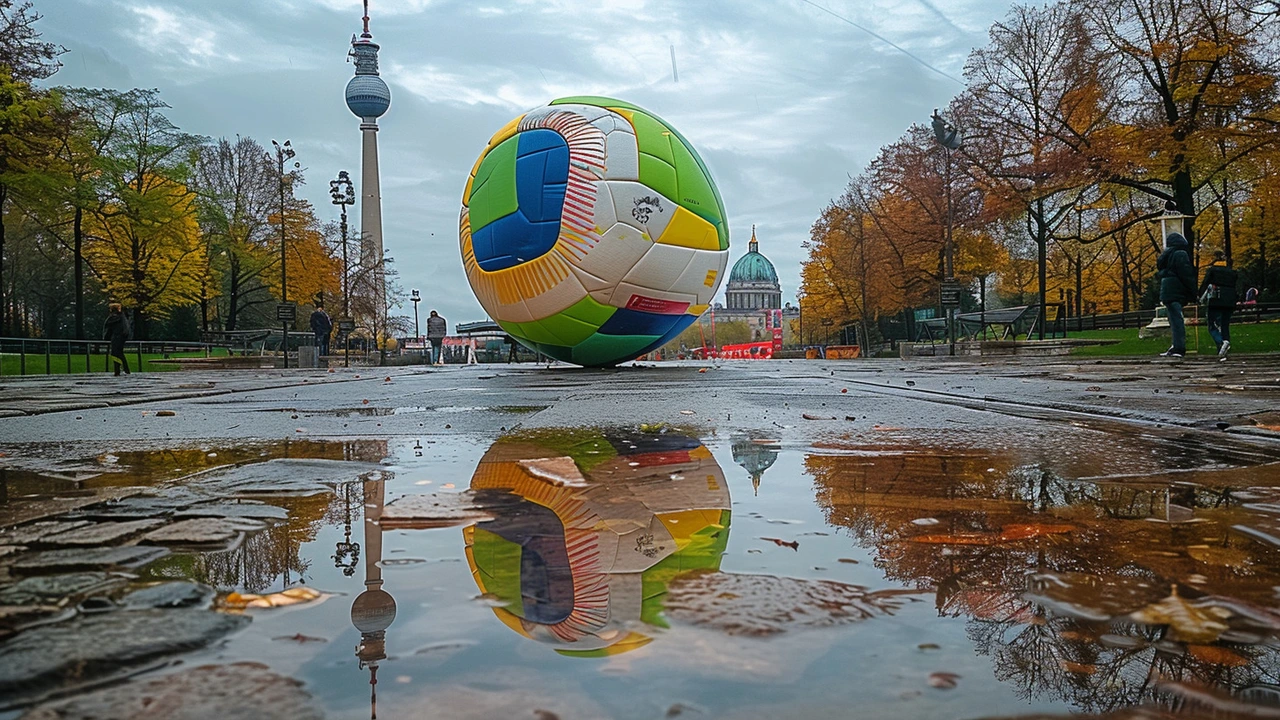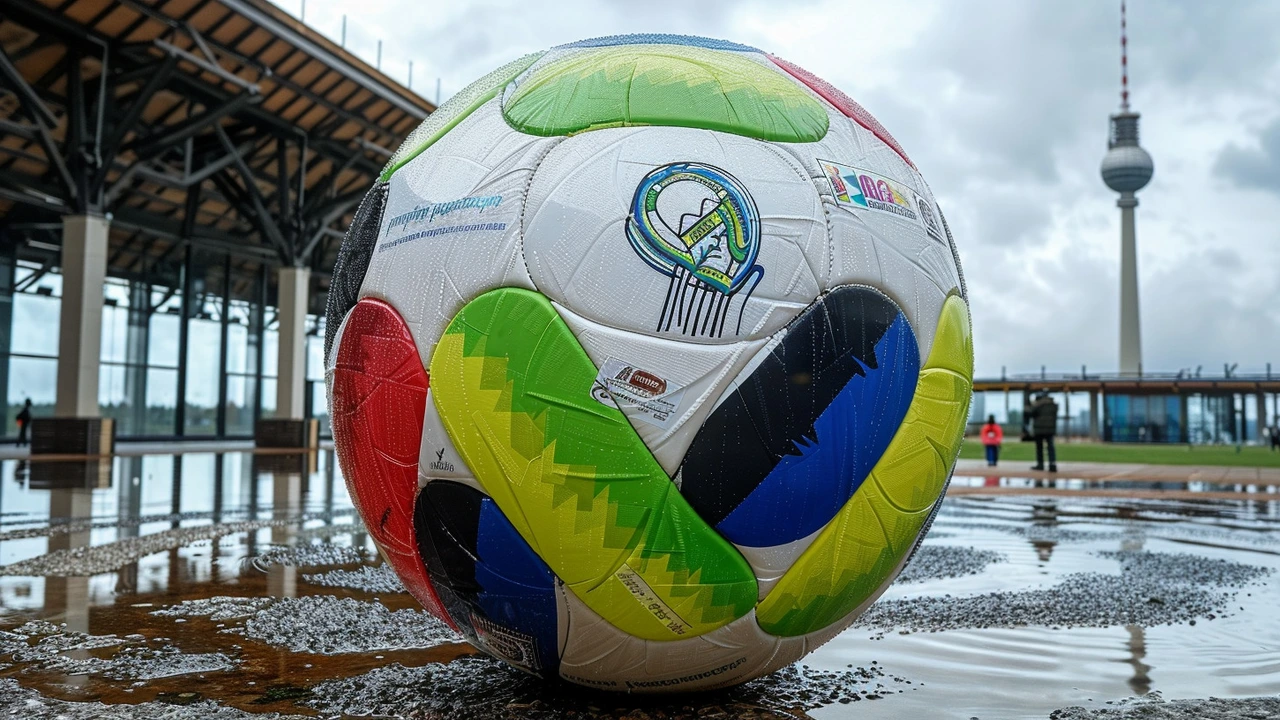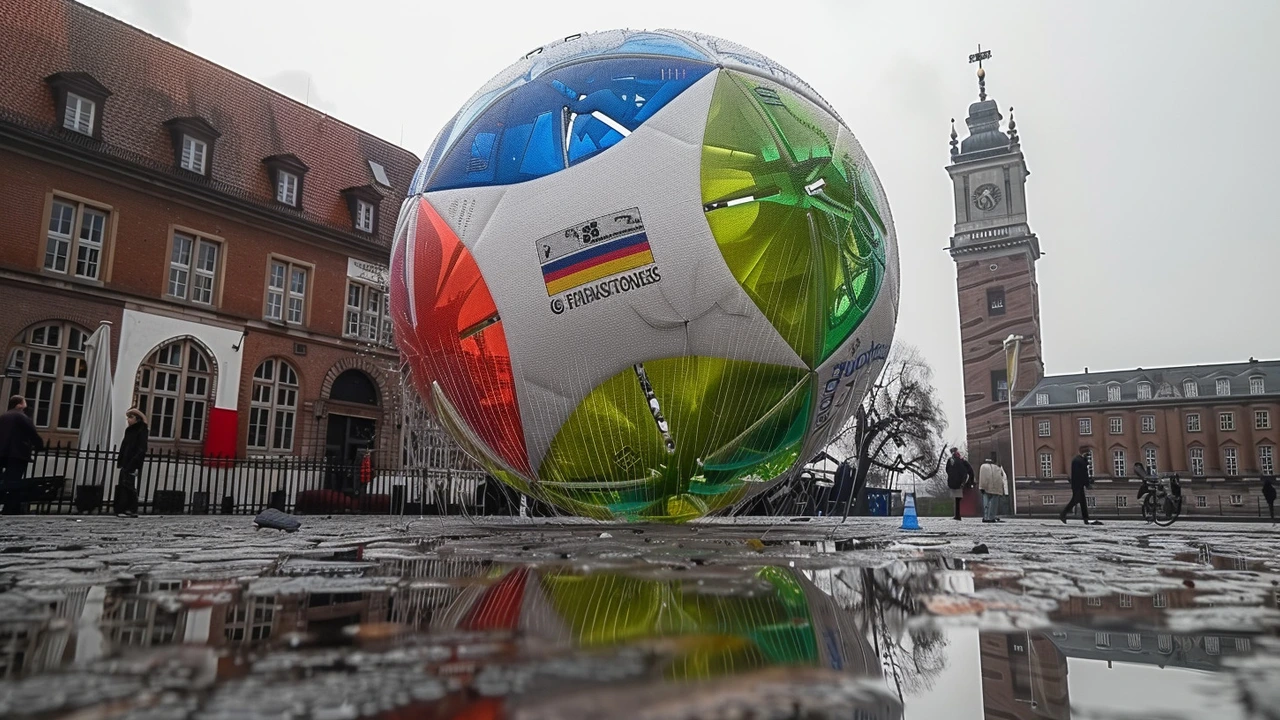Germany vs Spain: A Quarterfinal Match Unveiling Historical Divides
The highly anticipated Euro 2024 quarterfinal between Germany and Spain has not only captivated football fans across Europe but has also brought to the forefront a discussion that reaches far beyond the pitch. This match has underscored the persistent east-west divide within Germany—a divide that has continued to shape various aspects of German life, including its beloved sport of football.
A Legacy of Division
Germany's history of division is well known. The country was split into East Germany (GDR) and West Germany (FRG) after World War II, a separation that lasted until the fall of the Berlin Wall in 1989 and the subsequent reunification in 1990. Despite over three decades of reunification, the scars of this separation remain visible, especially in the realm of football.
The Football Landscape: East vs. West
The ongoing impact of this historical divide is reflected in the structural and economic development of football clubs across the country. As it stands, only two clubs from the former East Germany—RB Leipzig and 1. FC Union Berlin—compete in the Bundesliga, Germany's top football league. This skewed representation highlights the significant developmental lag the east has experienced compared to the wealthier and more established west.

Economic Disparities Impacting Football
The economic divide is one of the critical factors influencing this disparity. After reunification, the German Football Association (DFB) absorbed the East German football system, but the financial and infrastructural differences were vast. While West German clubs flourished with a wealth of resources and investments, many East German clubs struggled to attract similar levels of funding and sponsorship. This financial gulf has inevitably influenced the number of high-performing teams emerging from these regions.
The National Team Reflection
Even looking at the German national team, the disparity is evident. The current squad for Euro 2024 includes only one player born in the former East Germany—veteran midfielder Tony Kroos. This meager representation signals an alarming trend where young talents from the east find it difficult to rise through the ranks to international prominence.
Expert Insights on the Divide
Ulrich Hesse, a prominent football historian, remarks, "The divide in German football is a manifestation of deeper societal and economic disparities." Sports historian Alan McDougall elaborates on this, pointing out, "The infrastructural inadequacies in the east and the historical neglect have created a competitive imbalance." Similarly, Hans-Georg Moldenhauer, a former DFB official, adds, "The DFB's efforts post-reunification, though well-meaning, couldn't bridge the gap that decades of separation had created."

The Cultural Impact
Beyond football, this divide also traverses cultural and social realms. The east-west divide has created different identities and aspirations among people from these regions. Football, being a societal mirror, vividly reflects these differences. The determination and grit displayed by clubs from the east, despite the odds, highlight a unique regional spirit often overshadowed by their western counterparts' success.
Analyzing the Way Forward
Addressing this divide involves a multifaceted approach. The local governments and football associations need to invest in grassroots programs and enhance infrastructural development in the east. Creating more equitable financial distributions and fostering a collaborative environment for talent development can significantly impact bridging this gap. Furthermore, acknowledging and celebrating the rich football history of East Germany, without letting it fade under the larger West German narrative, is crucial in creating a unified football culture.
Conclusion: Embracing and Overcoming Differences
The Euro 2024 quarterfinal clash between Germany and Spain, while a thrilling contest on the field, has opened a broader dialogue about the remnants of Germany's split. The ongoing east-west divide in German football is a microcosm of the larger societal challenges that persist. Recognizing, addressing, and actively working to overcome these disparities are essential steps towards a truly united German football landscape and society.
As football continues to captivate and unite people worldwide, the story of Germany's east-west divide serves as a poignant reminder that the journey towards true unification is ongoing. By leveraging the unifying power of sport, Germany can hope to bridge these historical divides, creating not only a stronger football system but a more cohesive and inclusive society.


Abby Culbertson
July 5, 2024 AT 19:34This east-west split in German football really hurts my heart.
Awolumate Muhammed Abayomi
July 5, 2024 AT 19:44Yo man, totally feel you on the east side struggles – we gotta push for more support and make sure those clubs get the love they deserve, yo!
Josh Tate
July 5, 2024 AT 19:54I get the frustration behind the stats, it’s clear that the old divide still seeps into the game. We’ve seen clubs like Union Berlin fighting against the odds, and that grit is something to celebrate. Still, the funding gap feels like a never‑ending battle, and it’s okay to feel upset about it. Let’s keep talking about ways to invest in grassroots out east, cause that’s where the next stars could emerge.
John Smith
July 5, 2024 AT 20:04First off, the whole east‑west narrative in German football isn’t some fresh drama, it’s been brewing since the Cold War split. Back then the DDR had its own league, talent pipeline and fan culture, which the unified DFB basically swallowed without a proper integration plan. That’s why you still see RB Leipzig, a club that was essentially manufactured by a corporation, sitting next to the historically rooted Union Berlin as the only eastern representatives. Meanwhile, West German clubs like Bayern Munich and Borussia Dortmund have been sitting on decades of sponsorship deals and stadium upgrades. The financial disparity translates directly into scouting networks; western academies can afford state‑of‑the‑art facilities while eastern ones scramble for basic equipment. Even the player development numbers tell the story – a tiny fraction of German internationals hail from the former GDR. Tony Kroos being the lone east‑born name in the Euro squad is less an exception and more a symptom of systemic neglect. If you look at the youth leagues, the western regions consistently produce more under‑21 talents that get picked up by top clubs. This isn’t just about money; it’s about cultural capital and media exposure that western clubs enjoy. The DFB’s revenue sharing model still heavily favors the big market clubs, leaving the east in a perpetual catch‑up mode. Fans in Leipzig and Berlin have shown incredible passion, but passion alone can’t buy you a €100 million stadium. What’s needed is a coordinated investment strategy that targets grassroots facilities, coaching education, and regional leagues. Only then can the east start feeding the national team pipeline with a steady flow of talent. Otherwise we’ll keep hearing the same old story of a divided football nation masked by a single national jersey. So yeah, the quarter‑final against Spain spotlights the issue, but the real battle is played out in boardrooms and municipal budgets. Bottom line: without a serious financial and structural overhaul, the east‑west gap will keep haunting German football for decades.
Alex Soete
July 5, 2024 AT 20:14Hey folks, let’s channel that frustration into positive action! The east has shown resilience, and we can amplify it by creating joint training camps between clubs from both sides. Imagine sharing coaching expertise, pooling resources for youth tournaments, and spotlighting eastern talent on national media. Those collaborative steps could shrink the gap faster than waiting for top‑down reforms. Plus, fans love a good underdog story, so championing these initiatives will boost ticket sales and community spirit. Keep the dialogue open, stay optimistic, and let’s push for real change together.
Cara McKinzie
July 5, 2024 AT 20:24Wow, another boring history lesson about football and politics – yawn. Guess Germany still can’t figure out how to play fair with their own teams.
Joseph Conlon
July 5, 2024 AT 20:34Honestly, I think people are over‑hyping the east‑west divide; football is just football, and teams succeed based on merit, not geography. Sure, the numbers show fewer eastern clubs, but that’s because the best players naturally gravitate toward bigger markets where they can earn more. If you’re looking for a cure, blocking talent from moving westward won’t help – it’ll just starve the league of competition. Also, the DFB’s funding model rewards performance, not regional loyalty, which is sensible. While nostalgia for a unified football culture sounds nice, the reality is that the market decides where investment flows. So instead of whining, maybe we should focus on how eastern clubs can become better at selling that brand and attracting sponsors. After all, a club that can’t market itself will always stay in the shadows, regardless of its heritage.
Mohit Singh
July 5, 2024 AT 20:44It’s funny how everyone pretends the east‑west thing matters, when in fact the clubs that don’t perform just get left behind. If the eastern side wanted success, they'd stop whining and start working harder. The DFB can’t fix every discrepancy overnight. So stop expecting miracles and recognize that football rewards winners, not victims.
Damian Liszkiewicz
July 5, 2024 AT 20:54Let’s step back and view this divide as a symptom of broader socioeconomic patterns. 🤔 When resources cluster in the west, it’s natural that talent pools follow. But football can also act as a catalyst for regional development if we invest wisely. 🌍 Encouraging cross‑regional youth exchanges can foster both skill and cultural understanding. Ultimately, the game unites us, and that unity can become a bridge over past separations. 🙌
Angela Arribas
July 5, 2024 AT 21:04While your optimism is admirable, the data clearly shows a 70 % funding disparity that you conveniently ignore. The moral of the story is that well‑meaning sentiment doesn't replace concrete financial equity. :|
Sienna Ficken
July 5, 2024 AT 21:14Oh, so now we need a “football equalizer” like a magic wand? Maybe sprinkle some fairy dust on RB Leipzig and watch the east instantly catch up. If only real solutions were that whimsical.
Zac Death
July 5, 2024 AT 21:24Honestly, the fairy‑dust idea is a fun metaphor, but the real work involves policy and community engagement. We can start by lobbying for more balanced TV rights distribution and encouraging clubs to mentor smaller eastern teams. It’s not about quick fixes, but steady, inclusive growth. Let’s keep the conversation constructive and focus on actionable steps.
Lizzie Fournier
July 5, 2024 AT 21:34Great points all around; it’s clear that both investment and collaboration are key. Looking forward to seeing some concrete initiatives roll out.
JAN SAE
July 5, 2024 AT 21:44Absolutely!; we need more grassroots programs; more coaching clinics; and more cross‑regional tournaments; that’ll nurture talent everywhere; and bring the football community closer together!;
Steve Dunkerley
July 5, 2024 AT 21:54In summary, addressing the east‑west divide requires a multi‑pronged strategy encompassing fiscal redistribution, infrastructure upgrades, and talent development pipelines. By aligning stakeholder interests and employing evidence‑based policies, the German football ecosystem can achieve greater parity and unlock untapped potential across the former GDR regions.